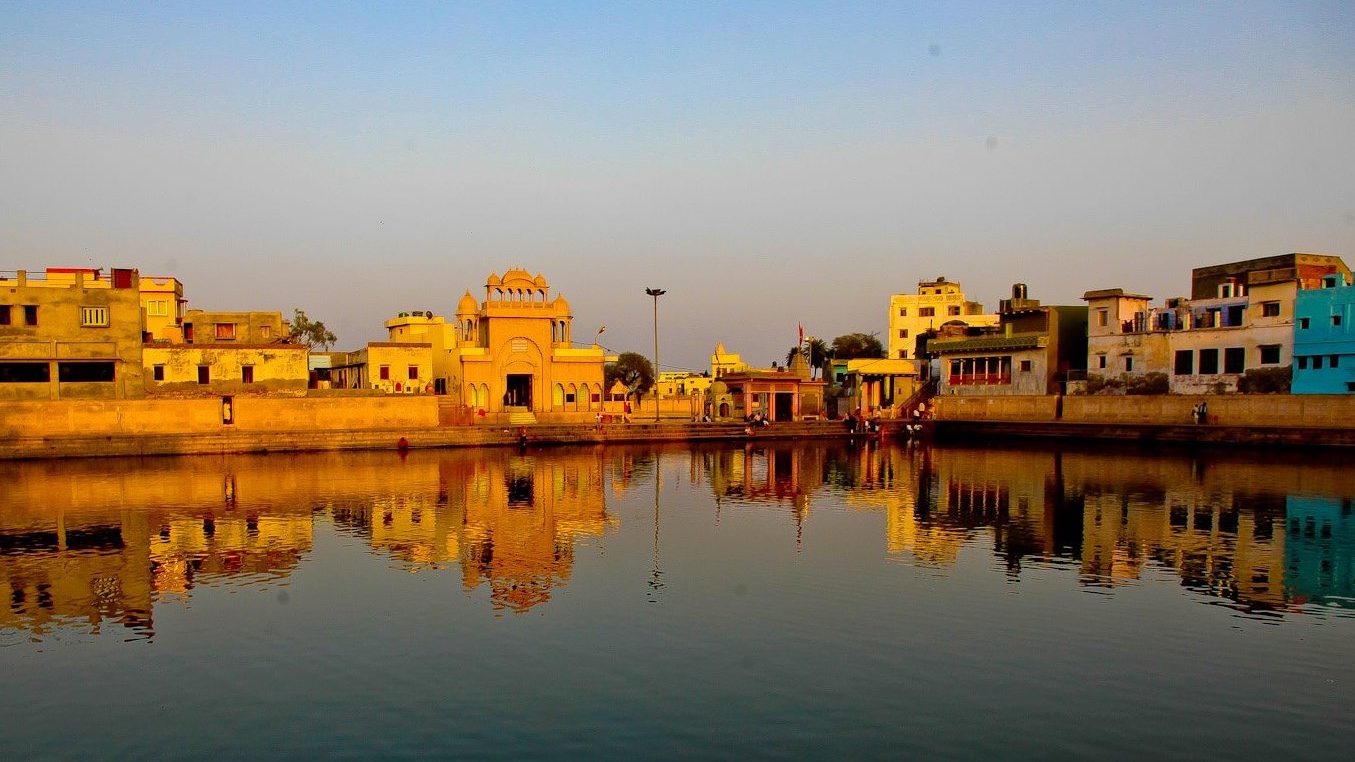
Verse 69
Because the kuṇḍa is endowed with Priyājī’s qualities of dearness it bestows a love equal to Radha’s on one who bathes there even once.
Śri Ananta dāsā Bābājī
We are natural born lovers. Our deepest and most authentic qualities are realised through the expression of that love. This happens on many levels, in many forms, and towards many different kinds of people.
In the last sentence of his commentary to the final verse of Bhagavad-gītā Śrīla Prabhupad declares that the ‘normal condition’ of every living entity is in the ‘pleasure-giving potency’ of Kṛṣṇa, the divinely loving energy of Rādhā. He means that to love God is our highest aspiration and our most natural state. And yet we all find ourselves so far from that state, so far from being ourselves.
What can it mean to love God? It does not mean turning our back to our imperfect existence in order to seek God somewhere far away in the desert or high on a mountain top. It must mean to love what is purest in us and what is purest in others.
To love God does not mean to look elsewhere, but to look in ourselves. To love God does not require us to search for something perfectly loveable beyond us because what we are is somehow not loveable. On the contrary, to love God is to love the divine within us.
The divine within us is called the soul, our spiritual form (svarūpa). For most of us our spiritual form is invisible to us, covered by our egoism, hidden behind our belief that the roles we play in material life are who we are.
Spiritual practice means clearing away the debris on that path of self-delusion and finding our way to the realisation that we are souls, to the reality that there is something more to us than the clothes we wear or the house we live in.
To walk a spiritual path means nothing other than to retrace our steps back to the heart. It means to find our way back to our true identity, and to the only true goal: to love. In its highest form, this means to love what is divine.
Fortunately we have a model for loving the divine in us, a teacher, a guru: Rādhā. If Kṛṣṇa is divine love, then Rādhā is divine loving. She is the pure lover of Kṛṣṇa. This is for the simple reason that for Rādhā there is nothing else. There is nothing more precious than her lover. There is nothing she needs or want to have. She needs only to be, to be love of Kṛṣṇa.
This is the message for us. Love is not having, love is being. If we believe that love means possessing the object of our love, then we are mistaken. The insecurity we feel, the envy and discontent this attachment brings us are the signs of our mistake.
According to the legend of their pastimes of the forests of Vrindavan, Krsna and Rādhā play loving games together in the waters of Rādhā Kuṇḍa. They gleefully splash each other with the waters of divine love, they hide from each other beneath its dark surface, wash each other in its purifying emotion, blind each other’s eyes with splashing droplets, and embrace each other in the soothing coolness of the liquid love that washes over them.
This is why Rādhā Kuṇḍa is considered a most holy place. It is Rādhā’s love in liquid form. When we swim there, when we let ourselves slide beneath the surface and be enveloped by divine love. The divine water touches every part of us, occupies all the folds and crevices of our body, fills our ears and nostrils, caresses our lips. No part of us is untouched.
And when we emerge from Rādhā Kuṇḍa the water slips off our body and returns to the pool. We cannot keep it, cannot own it. No attachment is possible. The divine water simply is. Either we are fully immersed or we are nothing at all.